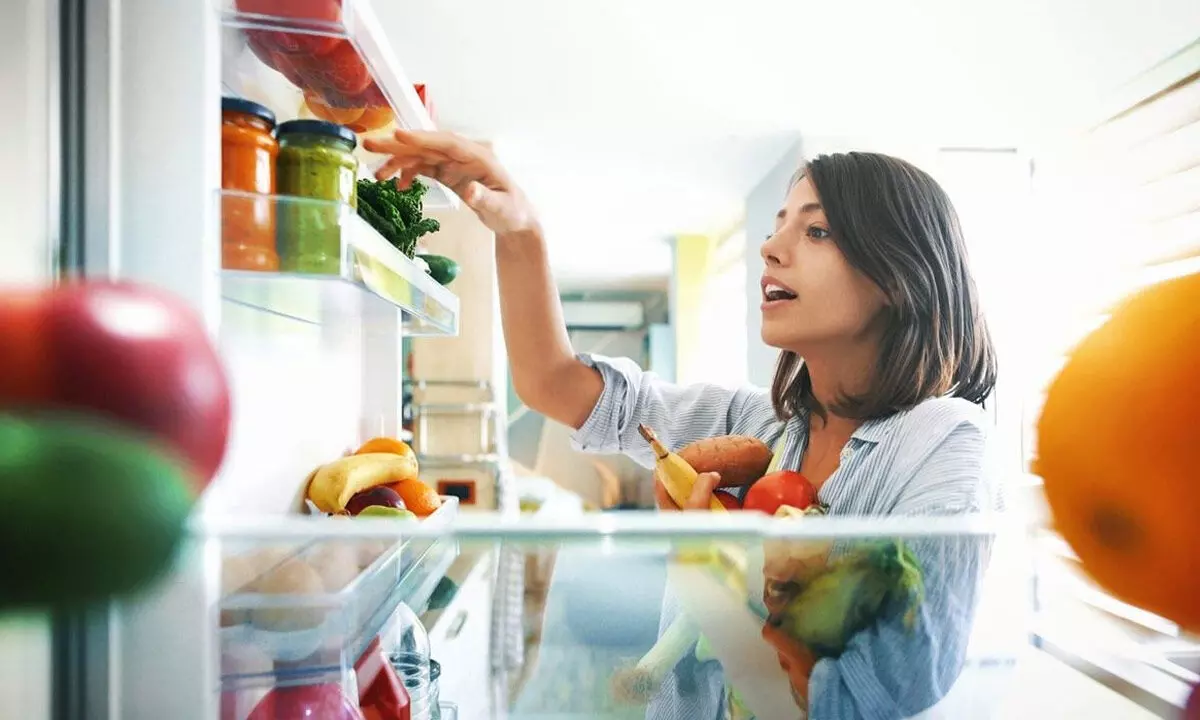Maximise your fridge space: A proper guide to food storage

In a bid to reduce food waste and ensure optimal freshness, organizing your fridge effectively is crucial.
In a bid to reduce food waste and ensure optimal freshness, organizing your fridge effectively is crucial. Whether it’s leftovers, meat, dairy, or fruits and vegetables, each item requires specific storage conditions to prolong its shelf life and maintain its quality. Here’s a comprehensive guide on how to organize your fridge to make the most of your groceries:
Leftovers:
• Utilize leak-proof, clear containers to store leftovers, adhering to the ‘first in, first out’ rule.
• Refrigerate leftovers within two hours of cooking to prevent bacterial growth.
• Divide leftovers into small, flat containers to expedite cooling.
• Maintain a fridge temperature of 40°F or below for optimal storage conditions.
Meat, Fish, and Poultry:
• Store these items in the coldest spot in your fridge, often at the bottom or in a designated meat drawer.
• Keep fresh meat, fish, and poultry in their store wrapping to minimize exposure to bacteria.
• Set the meat drawer temperature to 29°F for ideal storage conditions.
Dairy:
• Rotate older dairy items to the front to ensure they are used before their expiration date.
• Store dairy products such as milk and sour cream in their original containers or tightly covered with plastic wrap.
• Avoid storing milk in the fridge door, as it is the warmest spot in the fridge.
Fruits and Vegetables:
• Keep fruits and vegetables separate and store them like with like to prevent premature spoilage.
• Leave refrigerated produce unwashed in its original packaging or loosely wrapped in plastic bags.
• Store cut fruits and vegetables in perforated or unsealed plastic bags to maintain moisture while allowing air circulation.
Additional Tips:
• Rinse and dry sandy or dirty greens before refrigerating them to prevent mold and rot.
• Store onions, potatoes, and shallots in a cool, dark place away from plastic bags to prevent spoilage.
• Store bananas away from other fruits to minimize ethylene gas exposure, which can accelerate ripening.
• Keep apples in an uncovered fruit bowl on the countertop away from direct sunlight.
By following these guidelines, you can extend the shelf life of your groceries, minimize food waste, and ensure that your fridge remains organized and efficient. Proper food storage not only benefits your wallet but also contributes to a more sustainable approach to food consumption.



















